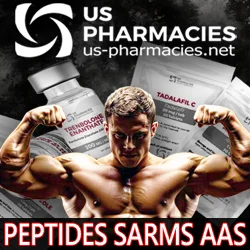motar said:
"By taking plain 'ol creatine monohydrate (without a sugar related insulin spike) for long periods, you will eventually reach that limit. That is the truth, argue if you like, but that is the truth."
Sorry that doesnt fly with everybody. I have taken prolabs creapure for over 3 months and didnt do much for me. Taken v12, swole v2, cell-tech etc. I am what you can call a creatine non responder been on AF's pure cee for about 3 weeks, I have gained some water weight but my strength is through the roof and I know it is from the creatine cause that is the only thing I am.
.If you are a non responder to creatine, then I would say that d-pinitol has its uses in this case ,perhaps your body just doesn't absorb/assimilate creratine very efficiently - I am not familiar with the brand you are talking about, but I think it is likely that it has d-pinitol
I have done a lot of scientific research into creatine and many other supplements in the last few months, and have found absolutely no trials or reports on esterfied creatine in any scientific journal. If something is not reviewed by peers, it is just heresay. I am willing to wager that the information that you have just given came from a biassed source. I do not believe it. Anyway, if bloating and stomach upsets are a problem (never had this before), then creatine magnesium chelate is a better option as it is 1. Cheaper and 2. Backed by scientific research (in terms of reducing the possibility of stomach upset)
Creatine Magnesium Chelate
Magnesium is a macromineral that has many synergistic effects with creatine. In fact, ATP is actually found in the muscle cells bound to magnesium for stability. Magnesium has been shown to enhance strength and energy levels taken on it’s own. It is intimately involved in the energy cycle and has cardio-protective effects as well. Creatine monohydrate has been shown to be very effective in many studies, however some users experience stomach discomfort due to lower absorption rate and breakdown into it’s by-product creatinine in the stomach. By creating a creatine-magnesium chelate, creatine can be protected from the harsh environment of the stomach acid and this chelate can help prevent breakdown. It can also help enhance absorption of creatine and decrease stomach discomfort that many creatine users (and their friends) can appreciate. This chelation provides a highly bioavailable form of creatine and magnesium. Some initial research shows it is better absorbed and tolerated than traditional creatine monohydrate. It also mixes well in water. There have been no side effects shown with this compound at the recommended doses and it shows excellent promise for the future of creatine.
(Rehan jalili, head of the sport supplement research foundation)
Over 95% of scientific studies use creatine monohydrate as their source of creatine, with at an estimate 80%+ positive reponses - what does that tell you?
The normal muscel Tcr concentration ranges between 120 and 125 mmol/kg dry mass muscle (Hultman et al 1990). However more recent studies indicate that ingesting creatine (20g/d) with glucose, carbohydrate and protein (Greenwodd et al 2000) aswell as D-Pinitol (Greenwood et al 2001) increased muscle creatine content to a greater degree than when creatine was injested alone.
A maintenance dose of 250mg d-pinitol was found to have the greatest effect on phosphocreatine concentrations after an initial loading phase of 250mg taken 3 days/week for 1 week (Walter et al 2003)
In your case, I would also suggest supplementing with r-ala (r-enametor alpha lipoic acid, much more effective than the r/s enametor mix in the vast majority of alas) - but with much more than you get from the supplement companies - I have the info on my hard drive, but It's late so I'm not going to reference it properly):
200 mg taken 5x per day with 5 servings of 5g creatine monohydrate for 1 week loading is optimal for phosphocreatine uptake - 200mg needed of creatine thereafter needed for maintenance(A 2004 canadian study, comparing various doseages)
As a result all subjects (both d-pinitol and r-ala) experienced an increase in muscle creatine content. - this is more relevant to you, being a non responder, than most creatine users. I still stick to my previous remarks for the vast majority of people taking creatine - you will eventually (albeit more slowly) reach peak creatine concentrations.
One other thing, I am a vegetarian, and have a great response to creatine (probably to do with having low baseline levels, as a result of my diet)
- It could be that you have high levels of creatine due to eating a lot of red meat/fish.


 Please Scroll Down to See Forums Below
Please Scroll Down to See Forums Below 
















